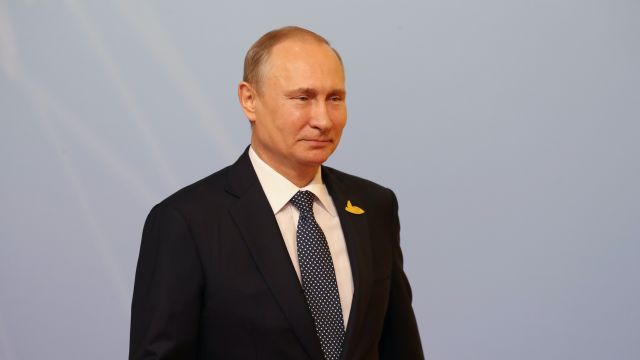Russian President Vladimir Putin has said a Covid-19 vaccine developed in the country has been registered for use and one of his daughters has already been inoculated.
He emphasised that the jab underwent the necessary tests and offers a lasting immunity from coronavirus.
However, scientists in the UK say no scientific evidence backing these claims has been published.
They also warn that the release of a vaccine that is not safe could cause extreme damage and worsen the current situation.
Danny Altmann, professor of immunology at Imperial College London, said there are many vaccines in development around the world and there is an interest in it all being a truly open.
He added: “While information on the vast majority of the vaccines and trial protocols in the world have been made available, there seems to be rather little detail thus far on the Russian candidates, except for a protocol on Clintrials.gov, which seemed to suggest an adenovirus vector.
“The bar is necessarily set very high for criteria that must be satisfied for approval after Phase 3 clinical trials.
“The collateral damage from release of any vaccine that was less than safe and effective would exacerbate our current problems insurmountably.
“I hope these criteria have been followed.
“We are all in this together.”
Speaking at a government meeting, Mr Putin said: “I would like to repeat that it has passed all the necessary tests.
“The most important thing is to ensure full safety of using the vaccine and its efficiency.”
Russia is essentially conducting a large population level experiment
But details of these tests do not appear to have been made available to the research community.
And there are also concerns about the way Russia has been reporting the number of Covid-19 cases in the country.
Keith Neal, emeritus professor of the epidemiology of infectious diseases, University of Nottingham, said: “Using the figures from www.worldometer.com an infection rate of 5,000 per day equates to one per 1,000 a month in Russia and this may be significantly under-reported.
“This will be higher in Moscow and probably health care workers.
“If 25,000 people were recruited in each arm then we would expect 25 cases in one month in the control group.
“Any figure less than 15 Covid-19 cases in the vaccine arm would be significant.
“Given the size of the Russian population, recruiting 50,000 people is well deliverable.
“Only 12,500 for two months gives the same results.
“It is not possible to know if the Russian vaccine has been shown to be effective without submission of scientific papers for analysis and then there may be problems on data quality.”
The World Health Organisation has said all vaccine candidates should go through full stages of testing before being rolled out.
Dr Michael Head, senior research fellow in global health, University of Southampton, said: “It is unclear precisely what is actually happening with the Russian vaccine.
“At this point in time, there is no data on the Russian-led vaccine for the global health community to scrutinise.
“There have been lessons learned from previous vaccine roll-outs, that were usurped by anti-vaccination activists and population health has greatly suffered.”
Dr Ayfer Ali, a specialist in drug research at Warwick Business School, said the problem with fast approvals is that potential adverse effects which are rare but serious are likely to be missed.
He explained: “Another issue is missing potential antibody-dependent enhancement (ADE) which is a phenomenon where a vaccine is not protective enough to prevent the disease but instead allows the virus to enter the body more easily and worsen the disease the vaccine is supposed to protect against.”
Dr Ali said this had already been observed in a animal models of non-Covid-19 coronavirus vaccines.
“Russia is essentially conducting a large population level experiment,” Dr Ali said.
Francois Balloux, professor of computational systems biology at University College London and director of the UCL Genetics Institute, branded the decision “reckless and foolish”.
He said: “Mass vaccination with an improperly tested vaccine is unethical.
“Any problem with the Russian vaccination campaign would be disastrous both through its negative effects on health, but also because it would further set back the acceptance of vaccines in the population.”
While Jonathan Ball, professor of molecular virology, University of Nottingham, said that although details of the Russian vaccine are scant, it appears to have gone through the early trial phases, so its safety profile should be reasonably well known.
“He added: “But whether it will work has not been established and therefore it doesn’t strike me as being very sensible to roll this out routinely.”







